Team USA's 5 best performances at the Tokyo Olympics
Is it possible to win the most medals at the Olympics and feel like the games were a disappointment?
The United States finished atop the overall medal table for the seventh consecutive Summer Olympics, but the Toyko Games marked only the fifth time in 28 Summer Games that the Americans produced more silver medals than gold. And if you ain't first, you're last, as noted sports philosopher Ricky Bobby once said.
According to FiveThirtyEight's projections, the second-largest U.S. team in Olympic history (613 athletes) finished 16 medals short of expectations. To be fair, several major nations fell far short: Host Japan was 14 medals down, according to FiveThirtyEight, while France and Germany were 16 and 13 off their hopes, respectively.
But it's not just the medal count that might be considered disappointing; it was the U.S. performances in marquee events.
Lilly King boasted that the American women's swim team had the talent to win every event. It won only three, two by long-distance powerhouse Katie Ledecky.
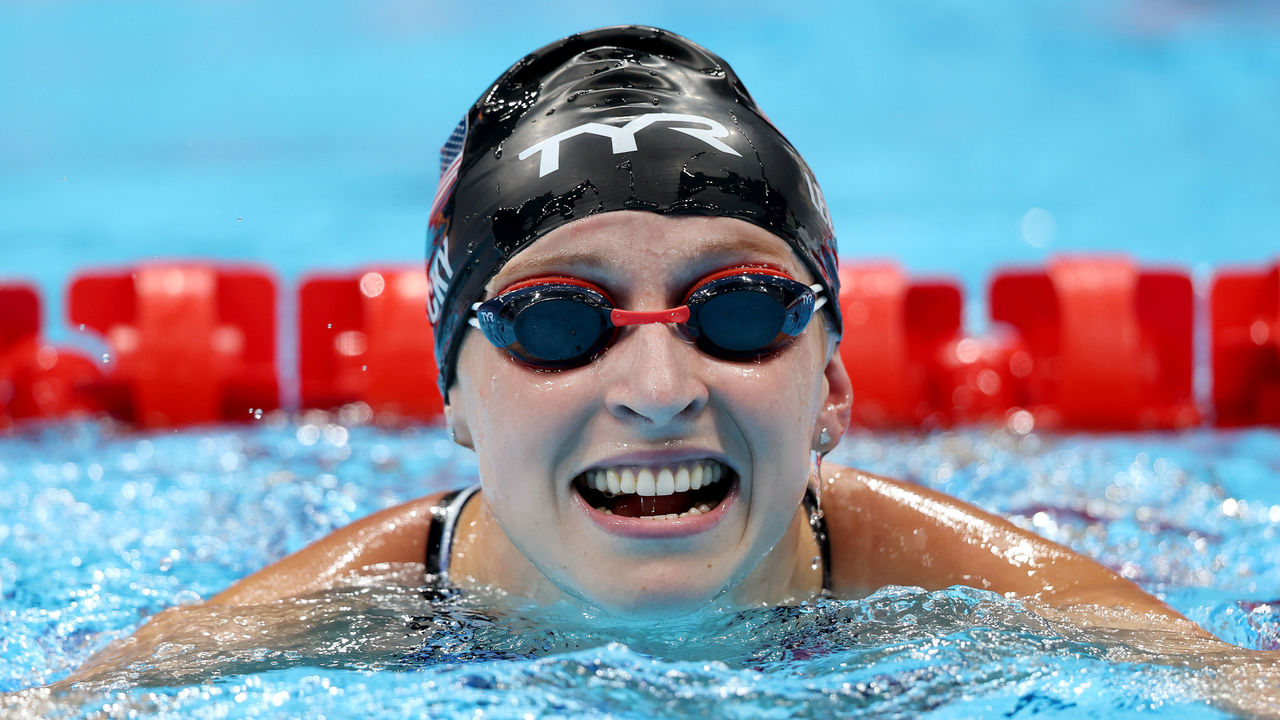
Over the previous five Olympics, the U.S. men's sprinters and hurdlers won gold in at least one of the five races (100/200/400m, 110/400m hurdles). But the Americans will leave Tokyo with none - and without reasserting superiority in the 100m and 200m after the retirement of Usain Bolt.
The U.S. finished with three basketball gold medals courtesy of its NBA and WNBA heroes, but the men weren't exactly dialed in like Dream Teams of the past.
The dominant women's soccer team struggled in the tournament, even though it made the semifinals, where it lost to Canada for the first time in 20 years. A bronze medal was the consolation prize.
Even the American public's performance was underwhelming, with the Tokyo Games drawing an average nightly audience of roughly 60% of the 2016 Olympics in Rio. Some believe NBC didn't do enough to promote some of the real stars of the games who nailed their events and performed up to expectations. Certainly, NBC's usual plan to show hours-old programming from an Asian locale in prime time has grown outdated with an always-online modern audience. And, well, there's the whole pandemic thing.
Still, U.S. athletes produced some magnificent, transcendent performances. Here are the five best:
Caeleb Dressel
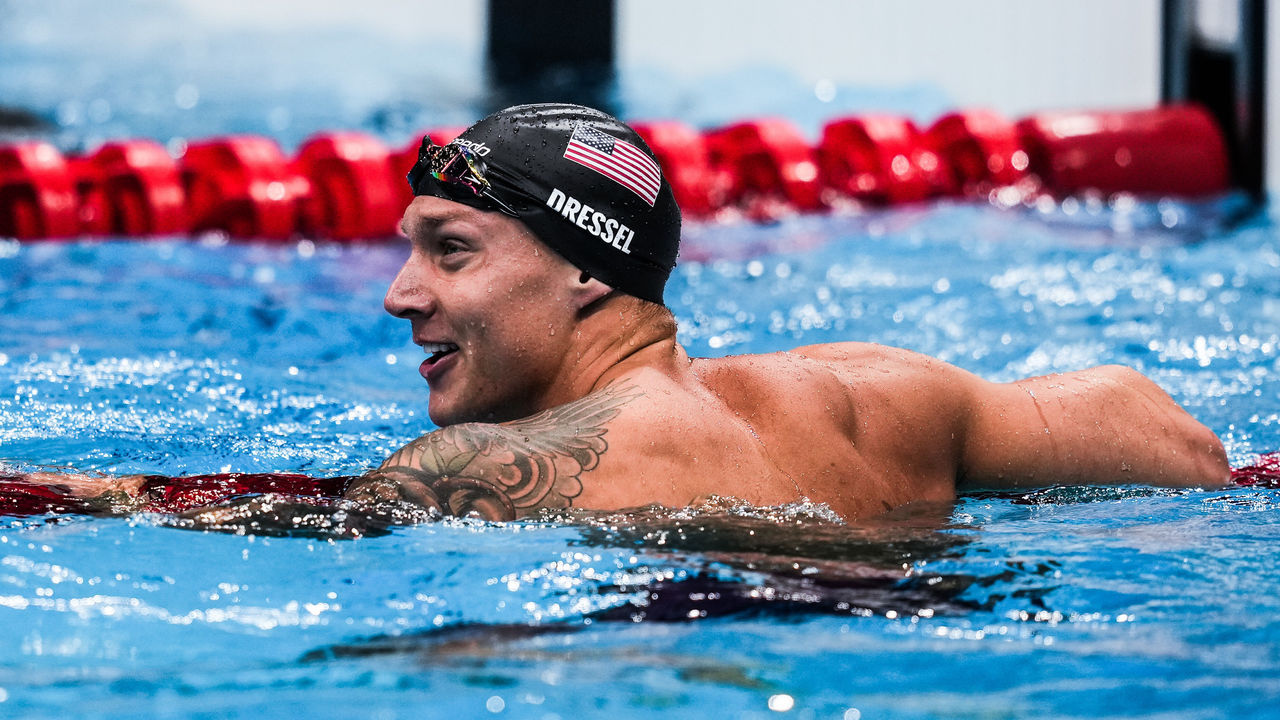
Precisely 205 nations sent athletes to Tokyo, and Dressel racked up more gold medals (five) than all but 16 of them. Canada's 370 Olympians combined for seven first-place finishes for the country's best Summer Games total since 1992. All that to barely edge Dressel's haul.
Dressel's dominance necessitates such a comparison. In the 50m freestyle, the meet's shortest race, he beat the silver medalist to the wall by almost half a second. In another final, Kristof Milak swam the fourth-fastest 100m butterfly ever (49.68 seconds), but Dressel lowered his world-record time to 49.45. In the 100m freestyle final, 2016 champion Kyle Chalmers matched his personal best and hung with Dressel until the last lunge, yet Dressel still prevailed in Olympic record time.
Then there were the men's relay victories. Dressel's opening leg of the 4x100m freestyle predictably was fastest in the field, staking the U.S. to a permanent lead. He swam a scorching butterfly leg in the 4x100m medley as the U.S. beat favored Great Britain and established the world record. These games belonged to Dressel. The Paris Games in 2024, when he'll be 27, shouldn't be any different.
On that note, Ledecky deserves recognition. Her time in Tokyo could only be seen as a comedown relative to the superhuman expectations she shoulders.
Ledecky flew home with two gold and two silver medals to boost her career Olympic total to 10. Her slow start to the 200m freestyle final consigned her to fifth place, and Australia's Ariarne Titmus outdueled her at 400m. But Ledecky reigned as expected at 800m and in the women's 1,500m race's Olympic debut. The longer she's in the water, the less conceivable it becomes that the world will reel her in.
Robert Finke
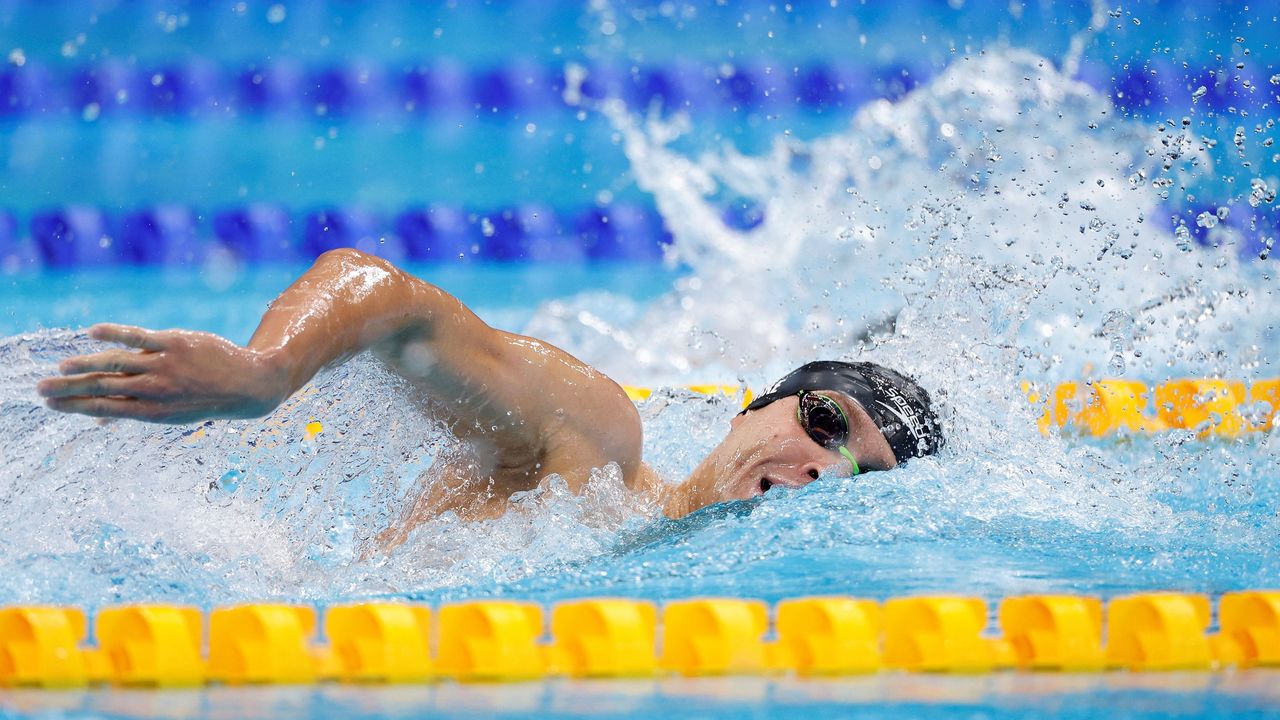
It's often difficult for an American to emerge from the shadows at the Olympics. Various world championships and Olympic trials make it hard to avoid being identified as a future Olympic champion. But Finke was hiding in plain sight until the final 25 meters of the men's 800m freestyle. Still fourth on the final half-length of the pool, he unleashed an unimaginable burst of speed to pass everyone in front of him. Those he passed aren't slouches in the water: All were past world champions at 1,500m, and two of them medaled later in the 10km open-water swim. But none were capable of covering the final 50 meters in 26.39 - about two seconds faster than anyone else that night. It might have been the most stunning performance in the pool.
In the 1,500m two days later, Finke faced the two open-water medalists again, and they meant to go hard from the start to blunt his finishing kick. But Finke stayed in touch throughout the 30 lengths of the pool, and they were powerless against his late speed.
"Honestly, it doesn't seem too real," Finke told The Associated Press. "I came in not expecting to medal and just do my best to make the finals. To come out with two golds, it means the world to me and my family and my teammates."
Sunisa Lee
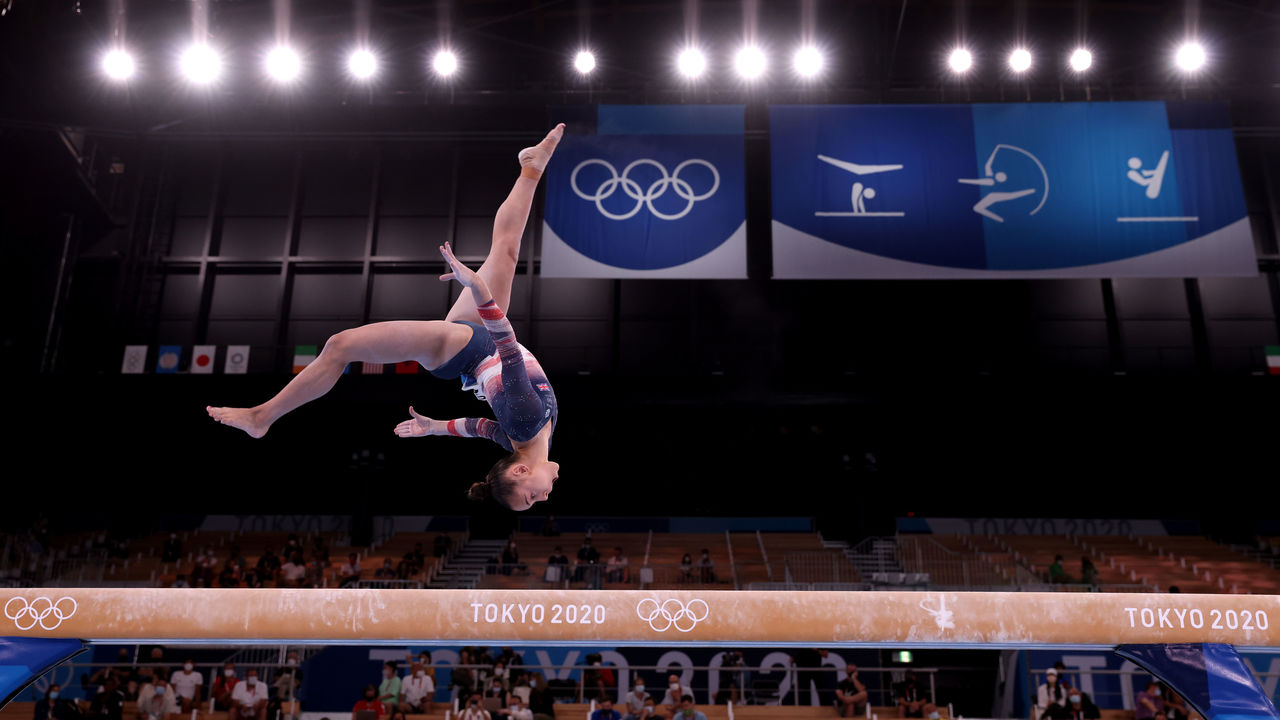
Gymnastics seems to crown a new queen every quadrennial, from Larisa Latynina, Olga Korbut, and Nadia Comaneci to Mary Lou Retton, Nastia Liukin, Gabby Douglas, and Simone Biles. This year, amid the maelstrom of chatter about Biles' decision to step aside in the middle of the team event, Lee arose to claim the mantle. She helped the U.S. team to silver, then owned the individual all-around to extend the Americans' hold on that title to five straight games. She added a bronze later in the uneven bars.
The Washington Post reported that Lee has two bar routines and decides which one to pursue after a particular move in the middle. She went for the more difficult endgame during the all-around, giving her enough points to win gold. Had she opted for the lesser version, she would have finished second.
But that was only the second event of the four-apparatus all-around rotation. Needing to protect a lingering foot injury in the floor exercise, the final event, she performed a dialed-down routine that allowed her to hit all her tumbling-pass landings.
Her high-stakes decisions gave her the perfect path to victory, to stand with Carly Patterson, Liukin, Douglas, and Biles as the Olympic all-around champion.
"Coming into this competition, I didn't even think that I could be competing for a gold medal," Lee told the Post. There was no way to know Biles wouldn't be extending her reign. "I was coming to compete for a silver medal. To be here is just crazy."
Sydney McLaughlin
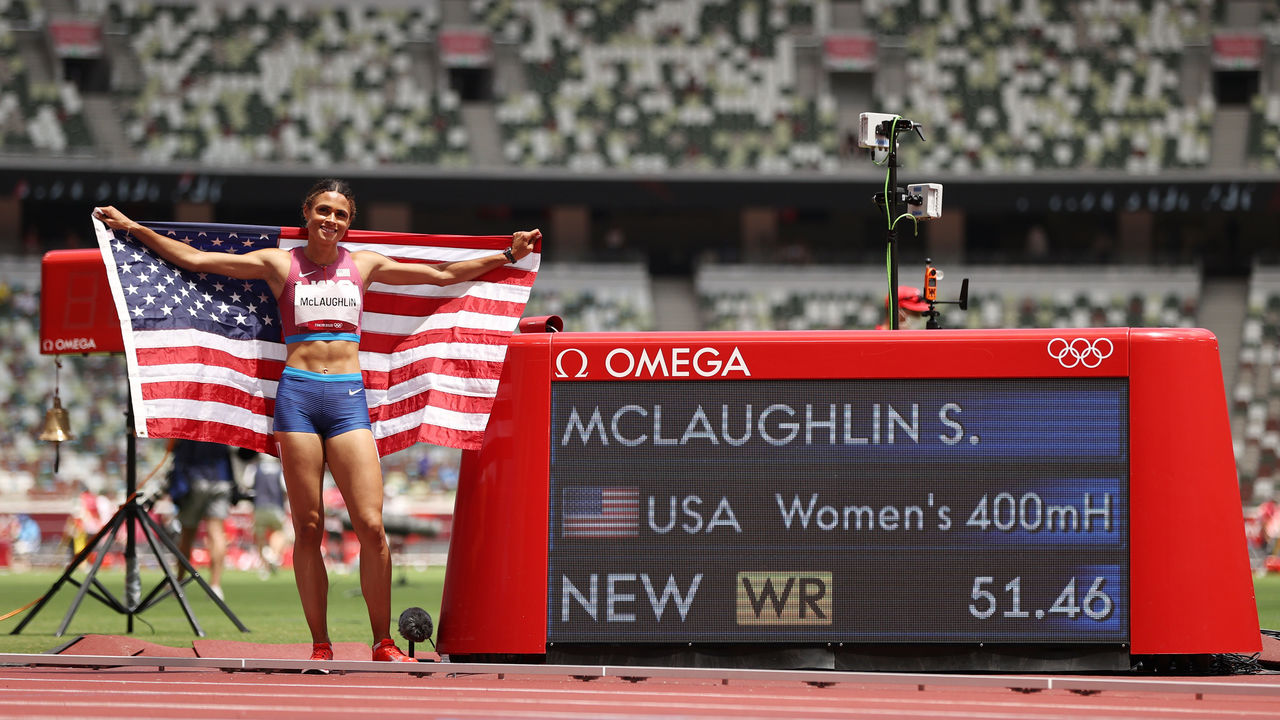
It seems like McLaughlin's fame has been simmering since her high school exploits in New Jersey got her noticed as a track talent to watch. At the age of 21, she exploded fully into that stardom, obliterating the world record in the 400m hurdles for the second time this year. The event record hadn't changed since 2003 until American Dalilah Muhammad lowered it twice in 2019 down to 52.16 seconds. McLaughlin first put her name in the record book at the Olympic trials in June, clocking 51.90.
On the fast surface in Tokyo, McLaughlin and Muhammed both went under 52 seconds in a race that wasn't decided until the last hurdle had been cleared. Muhammad, attempting to defend her 2016 Olympic title, had the edge at the 10th barrier but couldn't withstand McLaughlin's speed in the final strides.
Sydney McLaughlin's speed to the finish line was absurd. pic.twitter.com/84gWysq3TS
— CBS Sports (@CBSSports) August 4, 2021
The final clocking was 51.46, a huge leap in a record progression that had been stagnant until McLaughlin and Muhammad started dueling.
"I think that's really iron sharpening iron," McLaughlin told the CBC. "Every time we step on the track, it's always something fast."
On her 22nd birthday, McLaughlin teamed with Muhammad, 800m champion Athing Mu, and the venerable Allyson Felix to win the women's 4x400m relay. (It can't be forgotten that Felix won her 11th medal to become the most decorated American track athlete in Olympic history.)
Nevin Harrison
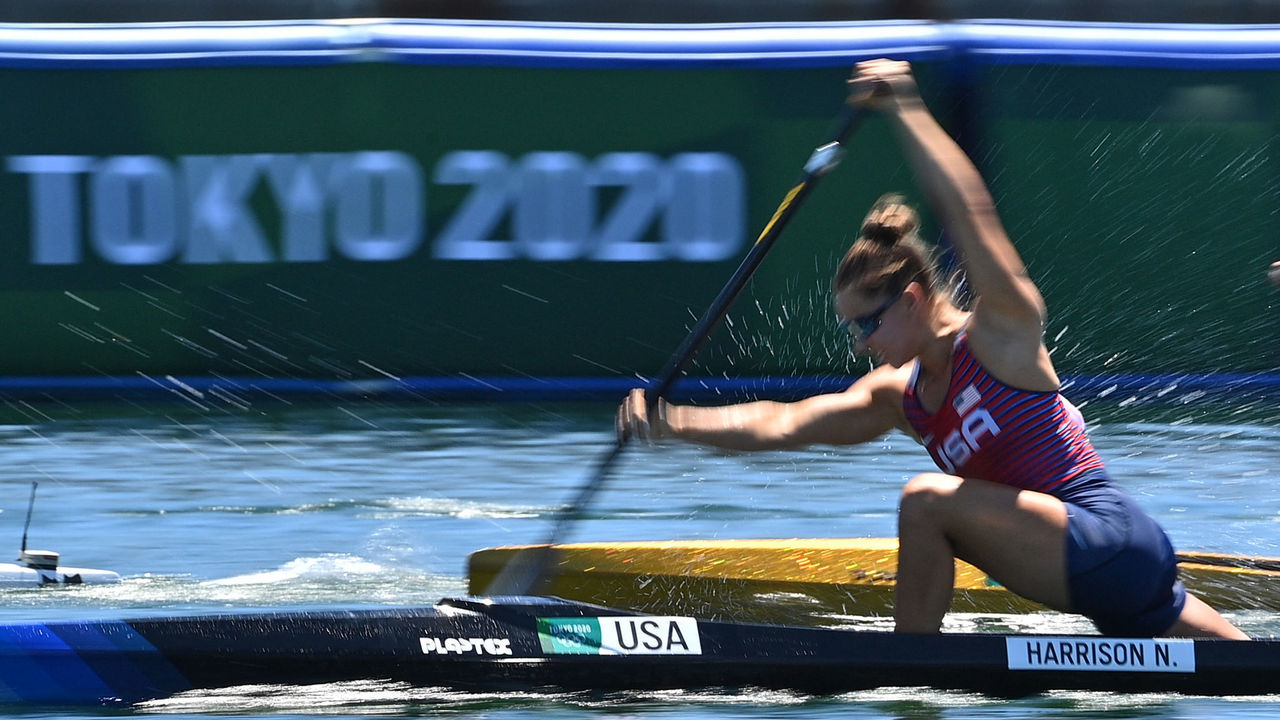
The Olympic program never featured women's canoe racing until this year, despite men competing in the discipline since 1936. Canada's Laurence Vincent Lapointe arrived in Tokyo with 11 world championship gold medals on her resume dating back to 2011. But it was Harrison, the 19-year-old from Seattle, who dominated the C1 sprint race over 200m. A new Olympic sport has a young champion who could reign for many years.
Hip pain from dysplasia forced Harrison to give up the other sports she was good at - softball, soccer, and track - so she concentrated on canoeing. Now an Olympic champion at 19, she's gained insight into teenage superstardom.
"I never really had a good understanding when I saw a 16-year-old gymnast competing at the Olympics," she told The New York Times. "I would think, 'Oh, they're just machines, they're programmed like that.' But the reality is, being a teenager in a high-level sport is so scary. You're still learning about the world, but you're expected to perform at the same level as women who have been doing it for two decades."